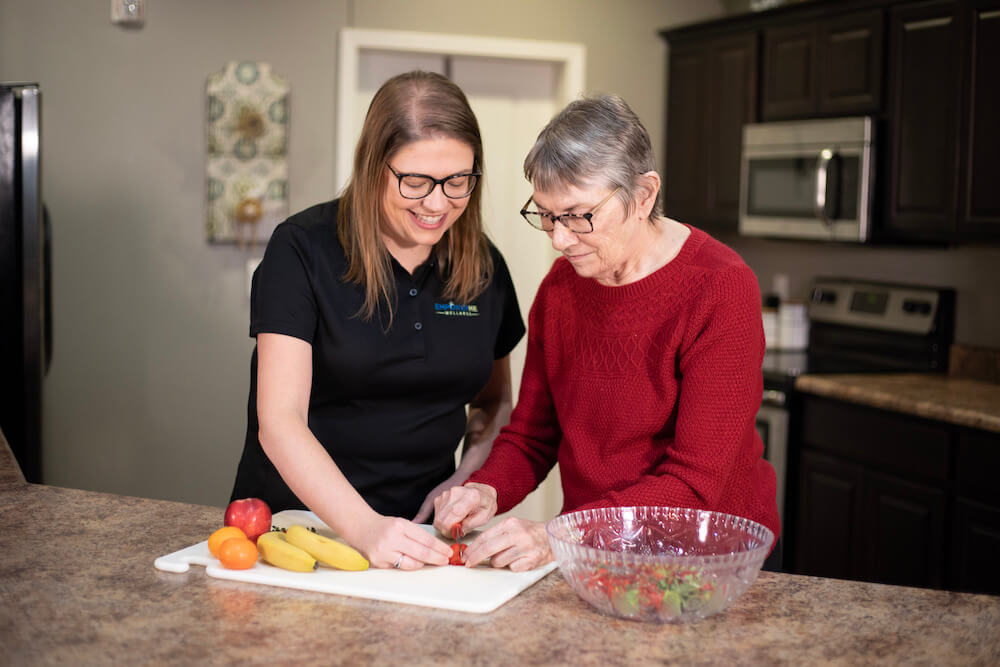Table of contents
The Benefits of Proactive Occupational Therapy for Seniors
According to the Census Bureau, by 2034, seniors (adults 65+ years) are expected to outnumber children for the first time in U.S. history. In aging, it’s common to experience a decline in physical and cognitive abilities, making daily activities a challenge. This can lead to frustration, loss of independence, and a decline in overall quality of life. As the senior population continues to grow, finding strategies to combat the negative effects of aging is crucial.
Fortunately, occupational therapy (OT) is a feasible solution for many. By helping seniors overcome physical challenges and improve their ability to carry out daily activities, occupational therapy can equip them to maintain their independence and continue to live fulfilling lives.
“The job of an occupational therapist is to understand each individual’s meaningful occupations and ensure they are able to participate or engage in those activities,” explains Julia Baechle, Vice President of Clinical Quality and Support at EmpowerMe Wellness. “Growing older is a privilege, and retaining your ability to engage in meaningful occupations is important to maintaining happiness, health, and quality of life.”
“Growing older is a privilege, and retaining your ability to engage in meaningful occupations is important to maintaining happiness, health, and quality of life.”
What is Occupational Therapy?
Occupational therapy is a vital resource for seniors, regardless of their current level of ability. The natural aging process results in a decline in strength, flexibility, endurance, coordination, balance, vision, and mental function. As a result of this functional decline, it becomes much more challenging to maintain one’s current level of independence or functional abilities. Maintaining the highest level of autonomy with daily tasks (including dressing, grooming, bathing, cooking, shopping, and more) is imperative for safely aging in place. Working with an occupational therapist on individualized treatment and goals can help prevent falls, decrease the need for assistance, and improve quality of life.
What Are the Benefits of Occupational Therapy?
Though the benefits of OT depend on one’s specific needs, here are some of the most common practices that occupational therapists work on with patients:
- Restoration of function: Improving strength, coordination, flexibility, endurance, and balance. This makes daily activities easier to accomplish and gives the seniors a feeling of independence.
- Modification of tasks or environment: Adding personalized recommendations such as handrails or grab bars, slip-resistant flooring, or light and contrasting. If a physical task is too difficult, occupational therapists might add helpful tools to the patient’s environment to make it easier.
- Compensation: recommending low-vision devices, long-handled reachers, dressing sticks, memory journaling, and alarms/reminders. Incorporating these tools into the patient’s life helps them remain independent and continue to complete tasks on their own.
While OT assists with a wide range of difficulties that arise from aging, many are still hesitant to begin treatment. This may be due to the perception of therapy being a common practice only after injury or a need for more understanding of occupational therapy.
Julia Baechle recommends starting occupational therapy as soon as possible: “You do NOT need to wait for a decline or injury to occur before starting occupational therapy,” she explains. “The best time to start occupational therapy is while you’re strong and active — it can help you prevent injuries or accidents and delay or slow the effects of natural aging.”
To begin OT sessions, ask your physician for recommendations and an order for occupational therapy. If you are a resident of a senior living community with an EmpowerMe therapy team on site, let a therapy team member know you are interested, and we will set up your first appointment to evaluate your needs and personalized goals.


